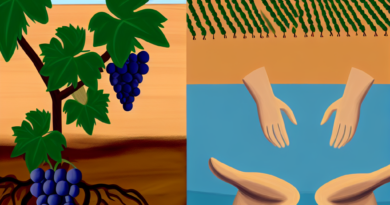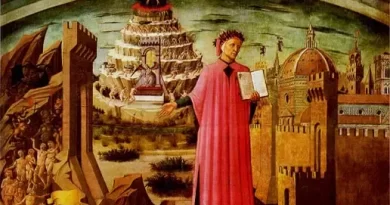Exploring Identity and Belonging in Things Fall Apart: A Window into Post-Colonial Africa
-
Table of Contents
Introduction
“Exploring Identity and Belonging in Things Fall Apart: A Window into Post-Colonial Africa” delves into the intricate themes of cultural identity and the quest for belonging within Chinua Achebe’s seminal novel. Set against the backdrop of colonial disruption in late 19th-century Nigeria, the narrative follows Okonkwo, a proud Igbo leader, as he grapples with the forces of change that threaten his traditional way of life. Through the lens of Achebe’s rich characterizations and vivid depictions of Igbo society, the exploration reveals the complexities of identity formation in a post-colonial context, highlighting the tensions between indigenous customs and the encroaching influence of Western ideologies. This examination not only sheds light on the personal struggles of individuals like Okonkwo but also reflects broader societal shifts, making it a crucial study for understanding the legacy of colonialism in Africa.
Identity Formation in a Changing Society
In Chinua Achebe’s seminal work, “Things Fall Apart,” the exploration of identity formation within a rapidly changing society serves as a poignant reflection of the broader post-colonial experience in Africa. The protagonist, Okonkwo, embodies the struggle between traditional values and the encroaching influence of colonialism, illustrating how identity is not a static construct but rather a dynamic interplay of personal and societal forces. As the narrative unfolds, it becomes evident that Okonkwo’s identity is deeply rooted in the customs and beliefs of the Igbo culture, which emphasizes strength, masculinity, and communal ties. However, the arrival of European missionaries and colonial administrators disrupts this established order, prompting a crisis of identity that reverberates throughout the community.
The tension between individual identity and collective belonging is particularly pronounced in Okonkwo’s character. His relentless pursuit of success and fear of being perceived as weak stem from his desire to uphold the values of his ancestors. This internal conflict is exacerbated by the societal changes brought about by colonialism, which challenge the very foundations of Igbo identity. As the traditional structures of authority and kinship begin to erode, Okonkwo’s sense of self becomes increasingly precarious. The disintegration of communal bonds not only threatens his personal identity but also reflects a broader existential crisis faced by the Igbo people as they grapple with the implications of colonial rule.
Moreover, Achebe deftly illustrates how the imposition of foreign values complicates the process of identity formation. The missionaries, with their new religious beliefs and cultural practices, introduce a paradigm that starkly contrasts with the indigenous worldview. This clash of cultures creates a rift within the community, as some individuals, like Nwoye, Okonkwo’s son, find solace in the new faith, seeking a sense of belonging that eludes them in their traditional environment. Nwoye’s conversion symbolizes a profound shift in identity, as he navigates the complexities of loyalty to his father and the allure of a new identity that offers acceptance and understanding. This generational divide underscores the multifaceted nature of identity formation, revealing how external influences can reshape personal and collective identities in unforeseen ways.
As the narrative progresses, the theme of identity is further complicated by the intersection of gender roles within the Igbo society. The expectations placed upon men and women create additional layers of conflict, particularly for characters like Ekwefi and Ezinma, who challenge traditional gender norms. Their experiences highlight the fluidity of identity, suggesting that belonging is not solely defined by adherence to cultural expectations but can also emerge from personal agency and resilience. In this context, Achebe emphasizes that identity is not merely a reflection of societal norms but is also shaped by individual choices and experiences.
Ultimately, “Things Fall Apart” serves as a powerful commentary on the complexities of identity formation in a changing society. Through the lens of Okonkwo and his community, Achebe captures the profound impact of colonialism on personal and collective identities, illustrating how the struggle for belonging is intricately tied to the broader socio-political landscape. As characters navigate the shifting terrain of their identities, they reveal the enduring human desire for connection and understanding, even amidst the chaos of cultural upheaval. In doing so, Achebe not only provides a window into post-colonial Africa but also invites readers to reflect on the universal themes of identity and belonging that resonate across time and space.
The Role of Tradition in Defining Belonging
In Chinua Achebe’s seminal work, “Things Fall Apart,” the intricate relationship between tradition and belonging emerges as a central theme that profoundly shapes the characters and their interactions within the Igbo society. Tradition serves not only as a framework for social order but also as a means of defining individual and collective identities. As the narrative unfolds, it becomes evident that the adherence to customs and rituals is pivotal in establishing a sense of belonging among the community members. This connection to tradition is particularly significant in the context of a rapidly changing world, where colonial influences threaten to disrupt the very fabric of Igbo life.
The protagonist, Okonkwo, epitomizes the struggle between tradition and the encroaching forces of colonialism. His fierce commitment to the values of strength, masculinity, and success is deeply rooted in the customs of his ancestors. For Okonkwo, belonging is intricately tied to his ability to uphold these traditions, which he perceives as essential to his identity and status within the clan. His fear of being perceived as weak, akin to his father, drives him to adhere rigidly to societal expectations. This adherence, however, also reveals the limitations of tradition, as it fosters an environment where emotional expression is stifled, ultimately leading to personal and familial disintegration.
Moreover, the communal rituals and ceremonies depicted in the novel serve as vital expressions of belonging. The annual yam festival, for instance, is not merely a celebration of agricultural abundance; it is a reaffirmation of the community’s shared values and collective identity. Through these rituals, individuals find their place within the larger social structure, reinforcing their connections to one another and to their cultural heritage. The communal aspect of these traditions highlights the importance of interdependence in Igbo society, where individual identity is inextricably linked to the community’s well-being.
As the narrative progresses, the arrival of colonial forces introduces a profound tension between traditional practices and new ideologies. The missionaries’ attempts to convert the Igbo people to Christianity challenge the established belief systems, creating a rift within the community. This conflict illustrates the fragility of belonging when faced with external pressures. Characters like Nwoye, Okonkwo’s son, embody this struggle as he grapples with his father’s rigid adherence to tradition and his own desire for acceptance and understanding. Nwoye’s eventual conversion to Christianity signifies a shift in his search for identity, revealing how the quest for belonging can lead individuals to redefine their connections to both family and culture.
In this context, Achebe masterfully illustrates the complexities of tradition as both a source of strength and a potential barrier to personal growth. The characters’ experiences underscore the notion that belonging is not a static state but rather a dynamic interplay between individual desires and communal expectations. As the Igbo society faces the challenges of colonialism, the role of tradition becomes increasingly contested, prompting a reevaluation of what it means to belong. Ultimately, “Things Fall Apart” serves as a poignant exploration of identity and belonging, revealing how deeply ingrained traditions can shape lives while also highlighting the necessity for adaptation in the face of change. Through this lens, Achebe invites readers to reflect on the enduring impact of tradition in defining not only personal identity but also the collective consciousness of a community navigating the complexities of a post-colonial world.
Colonial Impact on Personal and Cultural Identity
In Chinua Achebe’s seminal work, “Things Fall Apart,” the colonial impact on personal and cultural identity emerges as a central theme, intricately woven into the fabric of the narrative. The novel, set in pre-colonial Nigeria, provides a profound exploration of how colonial forces disrupt traditional societies, leading to a profound crisis of identity among individuals and communities. As the story unfolds, it becomes evident that the arrival of European colonizers not only alters the socio-political landscape but also instigates a deep-seated conflict within the characters, particularly in Okonkwo, the protagonist, who grapples with the shifting paradigms of his world.
Initially, Achebe presents a rich tapestry of Igbo culture, showcasing its customs, beliefs, and social structures. This portrayal serves as a foundation for understanding the profound sense of belonging that the characters experience within their community. However, as colonialism encroaches, this sense of belonging is threatened. The introduction of foreign religions and governance systems creates a rift between traditional values and the new ideologies imposed by the colonizers. This clash is poignantly illustrated through Okonkwo’s struggles, as he embodies the tension between adherence to ancestral customs and the inevitable changes brought about by colonial rule. His fierce commitment to traditional masculinity and success becomes increasingly untenable in a world that no longer recognizes these values.
Moreover, the impact of colonialism extends beyond individual identity to encompass collective cultural identity. The Igbo community, once unified by shared beliefs and practices, begins to fracture under the weight of colonial influence. The arrival of missionaries and the establishment of colonial governance not only challenge the existing social order but also instigate a crisis of faith among the people. As some members of the community convert to Christianity, they find themselves caught between two worlds, leading to a profound sense of alienation. This internal conflict is emblematic of the broader struggle faced by many African societies during the colonial period, as they navigated the complexities of cultural preservation amidst external pressures.
Transitioning from the personal to the communal, Achebe deftly illustrates how colonialism engenders a loss of cultural identity. The imposition of Western values and the denigration of indigenous practices create a sense of dislocation among the characters. Okonkwo’s eventual downfall serves as a tragic reflection of this broader phenomenon, as he becomes increasingly isolated in his resistance to change. His inability to adapt to the new realities of his world ultimately leads to his tragic end, symbolizing the devastating consequences of colonialism on individual lives and cultural heritage.
In conclusion, “Things Fall Apart” serves as a poignant exploration of the colonial impact on personal and cultural identity, revealing the intricate ways in which these forces intertwine. Achebe’s narrative not only highlights the struggles of individuals like Okonkwo but also reflects the collective trauma experienced by communities facing the onslaught of colonialism. Through this lens, readers gain insight into the complexities of identity and belonging in post-colonial Africa, as well as the enduring legacy of colonial encounters. Ultimately, Achebe’s work invites a deeper understanding of the historical and cultural contexts that shape individual and communal identities, emphasizing the importance of recognizing and preserving cultural heritage in the face of external challenges.




